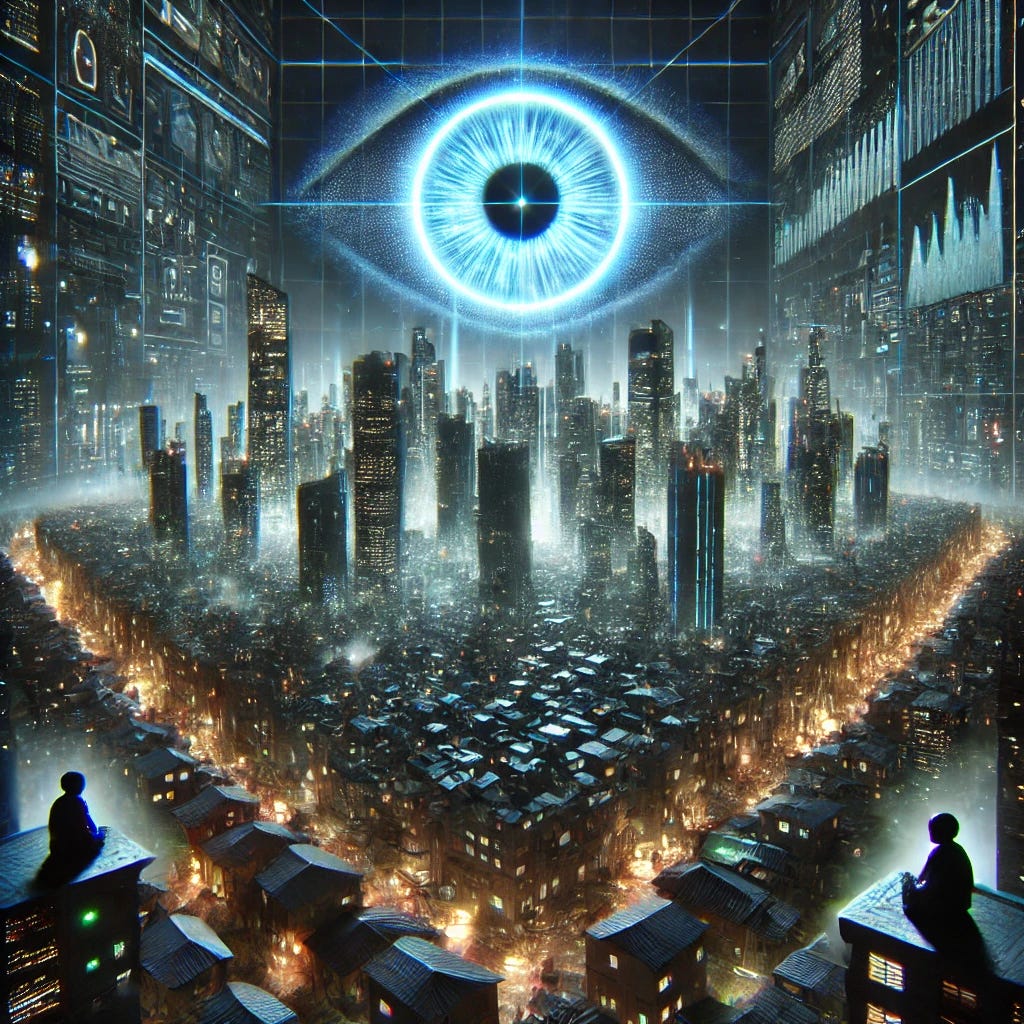The Singularity’s Shadow: Navigating a Plutocratic-Technocratic Future
How Wealth and Technology Could Shape a Post-Human Era—And What We Can Do About It

As humanity approaches the singularity, the fusion of wealth and technological control raises questions about equity, governance, and the future of democracy.
Entering the era of singularity under a plutocracy-technocracy hybrid raises significant questions about power, equity, and the nature of technological progress. Here’s an analysis of what this scenario could look like, its implications, and potential ways to mitigate risks:
1. The Structure: Plutocracy-Technocracy Hybrid
Plutocracy: In this system, wealth concentrates power. Decisions are influenced by those with substantial economic resources, prioritizing the interests of elites over the broader population.
Technocracy: Here, technological expertise governs decision-making. While this can lead to efficiency and innovation, it risks sidelining democratic processes if the broader population lacks influence over technological policies.
Combining these systems creates a reality where technological advancements and their governance primarily serve the wealthy and technologically adept, potentially deepening social divides.
2. Characteristics of a Plutocratic-Technocratic Singularity
Control of Technology
AI and Automation: Tools like AI, robotics, and automation are likely designed to optimize profits rather than equitable societal benefit, concentrating economic gains in the hands of a few.
Access to Innovation: Access to advanced technologies (e.g., life extension, enhanced intelligence, or resource control) may be gated by wealth, creating a stark division between those who benefit and those who are excluded.
Economic and Social Stratification
Digital Feudalism: Wealthy elites, through control of AI systems, data, and advanced technologies, could establish unprecedented economic dominance, marginalizing those without access.
Reduced Social Mobility: Automation and AI could exacerbate unemployment or underemployment for those without access to education or reskilling opportunities, creating a permanent underclass.
Erosion of Democracy
Algorithmic Governance: Policy decisions might increasingly be shaped by AI systems, with little transparency or accountability to the public.
Marginalized Voices: Democratic processes could be undermined as political power becomes even more concentrated in the hands of those controlling technological resources.
3. Risks and Ethical Concerns
Hyper Inequality: The gap between the "haves" and "have-nots" could reach unprecedented levels, fueling social unrest.
Loss of Agency: AI-driven decisions might limit individual freedoms, as algorithms prioritize efficiency and control over personal autonomy.
Ethical Blind Spots: Without diverse input, the moral implications of singularity-related advancements may be ignored, perpetuating biases and injustices.
4. Pathways to Mitigation
Redistribution of Power
Tech Commons: Advocate for technologies to be treated as public goods, ensuring equitable access and distribution of benefits.
Wealth Redistribution: Implement progressive taxation or universal basic income to reduce economic inequalities exacerbated by automation.
Democratic Oversight
AI Governance Frameworks: Establish transparent and inclusive frameworks to govern AI and technological advancements, ensuring decisions reflect the public good.
Public Participation: Encourage citizen involvement in shaping technology policy through education, advocacy, and participatory governance.
Ethical Tech Development
Diverse Input: Ensure that a wide range of voices, including marginalized communities, contribute to designing and implementing singularity-related technologies.
Regulation of Corporations: Hold tech companies accountable for ethical lapses and require transparency in algorithmic decision-making.
5. Opportunities Amidst Challenges
A singularity under plutocratic-technocratic control is fraught with risks, but it could also catalyze meaningful change. Public pressure and international cooperation could reshape this trajectory into one where technology serves all humanity, rather than a privileged few.
The singularity doesn’t have to deepen inequality—it can be a turning point for a more inclusive, democratic, and equitable future. Achieving this requires vigilance, ethical foresight, and collective action to ensure technology serves humanity, not just the elite.



I doubt that "technological expertise will govern decision-making" in the future, the next US administration will be based on merit and not expertise. But I agree that we need to decide what future we want:
https://theafh.substack.com/p/the-billionaires-club-and-the-ai